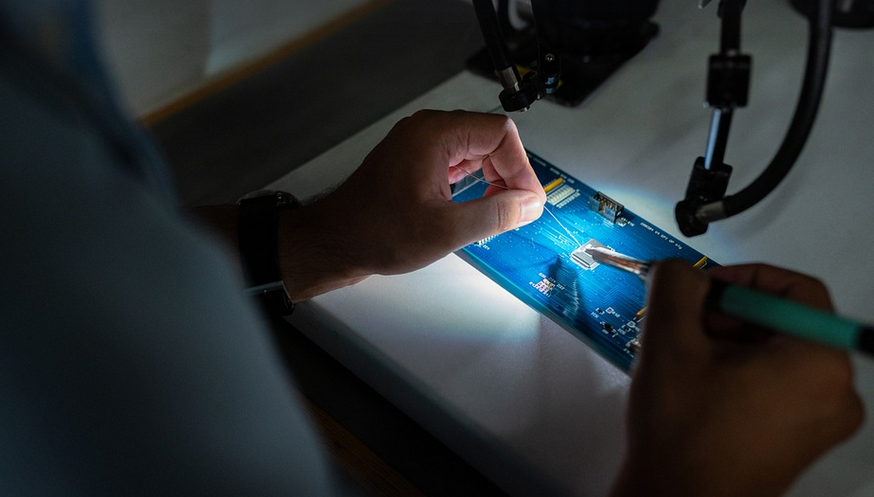Powering the Future of Asset Tracking
Imagine this: you’re juggling multiple projects, each requiring a fleet of equipment—machines, tools, vehicles. Keeping tabs on their whereabouts becomes a logistical mountain, impacting efficiency and potentially leading to costly downtime.
But what if there was a solution that seamlessly integrated GPS tracking with battery-powered technology? What if you could track your assets in real time, monitor their location, and ensure optimal utilization, all without the hassle of charging?
Enter the revolution: battery-powered GPS trackers. In 2024, they’re not just a promising trend; they’ve become a game changer for equipment management.
These sleek little devices are powered by batteries, eliminating the dependency on outlets or external chargers. This opens up a world of possibilities for businesses, especially those dealing with heavy machinery, critical infrastructure, and mobile assets like vehicles.
For decades, GPS trackers were limited to bulky, power-hungry units that relied heavily on electricity or required frequent battery replacements. This posed significant challenges:
• **Frequent charging limitations:** Traditional GPS trackers often required charging, leading to inconvenience and downtime, especially in remote areas or rough terrains.
• **Increased infrastructure costs:** The need for power sources like outlets or generators added significant costs for businesses, particularly those operating in remote locations.
• **Reliability issues with long-range tracking:** Limited battery life meant less distance traveled before needing to recharge, which impacted the accuracy and effectiveness of real-time asset monitoring.
But now, the landscape is rapidly changing.
The Advantages of Battery-Powered GPS Trackers
Battery-powered GPS trackers have ushered in a new era of flexibility and efficiency. Let’s delve deeper into their key advantages:
**1. Uninterrupted Operation:** Gone are the days of frequent charging worries. Battery-powered technology allows for uninterrupted operation, even in remote areas with limited access to power sources.
Imagine a construction site where heavy machinery needs to be monitored throughout the day and night, regardless of weather conditions or location. With battery-powered GPS trackers, you can be assured that your assets are always within reach, even without constant access to an outlet.
**2. Enhanced Asset Utilization:** Battery-powered GPS tracking empowers businesses with deeper insights into their asset utilization. Real-time monitoring helps identify optimal routes for equipment and optimize scheduling based on geographical information.
Imagine a fleet of delivery trucks traversing different cities. A battery-powered GPS tracker can seamlessly track each vehicle’s real-time location, providing precise data on fuel consumption, mileage, and potential delays. This allows businesses to allocate resources effectively, reduce downtime, and ensure smooth operations.
**3. Improved Safety and Security:** Battery-powered GPS trackers offer an added layer of safety for valuable assets. By tracking their locations in real time, they can alert personnel if a machine or vehicle is involved in an accident or theft attempt.
Think of the security challenges faced by construction companies dealing with large machinery during night shifts in remote areas. A battery-powered GPS tracker sends alerts to designated personnel in case of any unusual activity or suspicious movement around a piece of equipment, ensuring timely intervention and minimizing risks.
**4. Cost Savings:** Battery-powered trackers significantly reduce operational costs for businesses by increasing asset utilization, reducing fuel consumption, and enabling preventative maintenance scheduling.
Imagine the potential financial benefits for a transportation company using battery-powered GPS trackers in its fleet of trucks. By optimizing routes, minimizing downtime, and ensuring efficient fuel usage, they can see a substantial decrease in operational costs. This translates to more profits for the business.
**5. Environmentally Friendly:** Battery-powered GPS trackers contribute to environmental sustainability by reducing reliance on fossil fuels and promoting energy efficiency.
In an era of climate change consciousness, businesses are increasingly looking for eco-friendly solutions. Battery-powered GPS trackers offer a responsible way to manage assets without negatively impacting the environment.
The Future is Electric: 2025 Predictions
Looking ahead, battery-powered GPS trackers are poised to become even more integral in various sectors. In 2025 and beyond, we can expect:
• **Improved Battery Life:** Advancements in battery technology will lead to longer operating times for GPS trackers, allowing them to operate in remote areas without frequent recharging.
• **Wireless Communication:** The future of GPS tracking includes seamless connectivity through Wi-Fi and cellular networks. This opens up possibilities for real-time data analysis and automated responses based on location information.
• **Artificial Intelligence Integration:** AI technology will revolutionize asset management by facilitating predictive maintenance, preventing downtime before it occurs.
• **Data Analytics Powerhouse:** Advanced analytics will provide businesses with comprehensive insights into their assets’ performance, usage patterns, and operational efficiency. This data-driven approach will optimize asset utilization and drive profitability.
• **Seamless Integration:** The future of GPS trackers lies in seamless integration with existing business systems like ERP software and fleet management platforms. This allows for easy data sharing and provides a comprehensive view of operations.
The world of equipment management is evolving, and battery-powered GPS trackers are at the forefront of this revolution. They empower businesses to operate more efficiently, save costs, protect their assets, and make informed decisions based on real-time insights. As technology advances and adoption continues to grow, we can anticipate a future where battery-powered GPS trackers become an essential tool in the hands of every professional who manages equipment.


